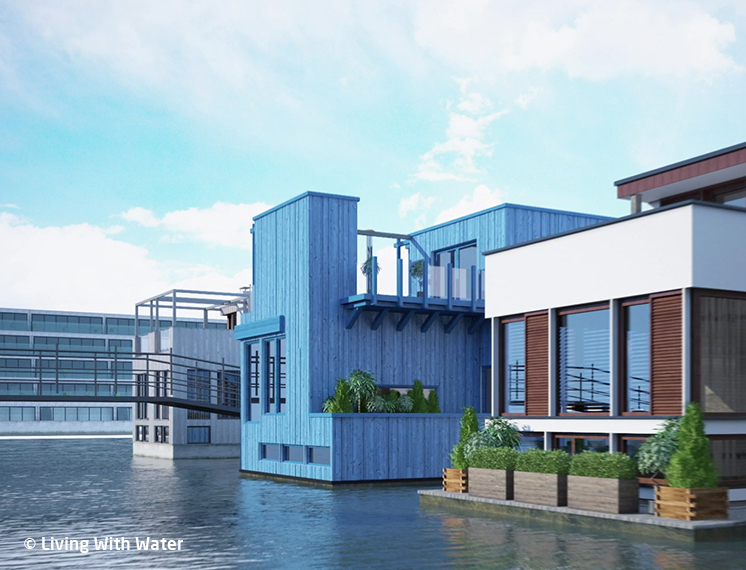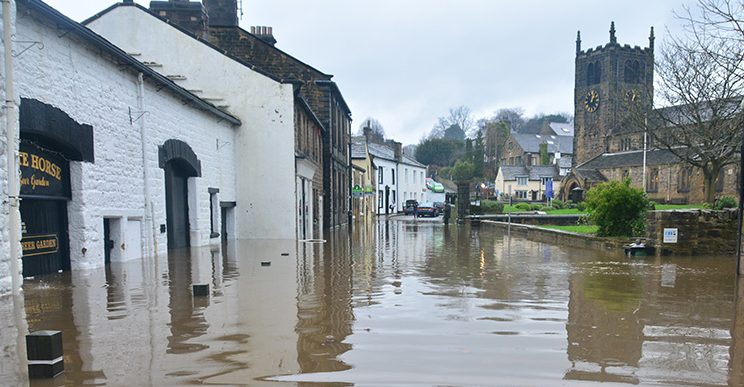WORKING WITH OUR COMMUNITIES
Led by:
SUPPORTING COMMUNITIES TO BE BETTER PREPARED
We’re helping communities become more flood resilient
Here at the Flood Innovation Centre, we understand how important it is for our communities to become more resilient and better prepared for the increased risk of major flood events. We have in-depth knowledge of flood risk management, as well as insight into the impacts of flooding.
We know that there are lots of community and voluntary sector organisations in our region that, with the right support, could make a real difference.
Positioning the Humber region as a centre of excellence for flood innovation
We aim to encourage creativity and resourcefulness from businesses and we recognise that improving economic development isn’t just about the bottom line – it’s about improving communities, business culture and communication. To help us do that we’ve embedded social values at the heart of our process, ensuring that the work we do benefits as many people as possible for as long as possible.
As a project within the University’s Energy and Environment Institute, staff team members from the Flood Innovation Centre regularly support university outreach events such as science festivals, school events and community workshops.
EDUCATING COMMUNITIES THROUGH GAMING TECHNOLOGY
By using gaming as an innovative learning tool, the University of Hull is educating communities across the region.
The University of Hull’s Earth Arcade, part of the Energy and Environment Institute, creates and uses interactive games to break down environmental research into more palatable chunks of information to make it easier to understand, inspiring communities to take action.
Available online, the games are often used in community-outreach work to help people understand the impact of flooding, plastics, pollution and energy.
Games include:
Flash Flood!
Uses virtual reality to demonstrate what it’s like to be in a river valley when it floods. It was built using data from a real river and based on a real flood.
Inundation Street
A 360 video that demonstrates what it could be like to wake up and find your house flooding, before taking you through some simple steps that can be taken to drastically reduce the impacts should the worst happen. This has been watched over 680,000 times on YouTube.
Humber in a Box
Uses virtual reality to show how sea level rises would influence tidal flood risk around the Humber Estuary.

BUILDING FLOOD-RESILIENT COMMUNITIES
Reducing flood risk with Yorkshire Water
Working closely with the Living with Water project, we’re addressing the flood risks in Hull and the Humber to deliver solutions that enable the region to become better prepared.
As Hull is a vulnerable, flood-prone area, the University of Hull’s Energy and Environment Institute has been conducting invaluable research to help build a picture of the city’s current resilience to flooding.
The first major piece of activity included a survey to 450 households in three flood-affected areas of Hull, to inform future research and to be used by Hull City Council to support the development of their flood-management strategy.
The survey asked residents about whether people experienced flooding in 2007 or 2013 and how it affected them; whether people feel at risk of flooding still; whether residents have taken any measures themselves to reduce their risk of flooding; and what residents understand about city-wide measures taken by the Living with Water partners.
Discover more about this project here.
MAPPING THE GAPS
A research partnership for delivering effective post-flood support
The Flood Innovation Centre is at the heart of a new research partnership aiming to address some of the problems experienced during post-flood recovery.
Currently, post-flood support is fragmented. The insurance industry wants to do more to support their customers to build back better by linking up customers, funding, underwriting and flood protection installers.
The project will map gaps in the provision of post-flood support and help insurers to understand which flood resilience measures are most effective. Working with partners at Aviva, we will explore cost/benefit models to increase sustainable living in flood risk areas.
We will initially pilot the research in the Humber Region, working with regional stakeholders including the University of Hull’s Energy & Environment Institute, as well as insurance industry representatives and third sector actors. The project’s final output, a place-based toolkit, will have the potential to be rolled out and implemented in other areas.
Discover more about this project here.


PUTTING CLIMATE CHANGE IN THE SPOTLIGHT
Supporting the National Youth Theatre to shine a light on the devastating impact of global warming
With the ambition to build flood-resilience knowledge within communities, the University of Hull is working on an epic theatre production called MELT, a major three-year project exploring climate change. The production will culminate in an outdoor processional piece with a cast of 1,000 young people.
MELT hopes to communicate the impacts of climate change and the sea level rising, whilst inspiring the brightest, creative young minds to join a new generation of green-energy leaders.
Leading climate scientists from the University’s Energy and Environment Institute, alongside experts in human geography, performing arts and other specialists will work with creative talent from the National Youth Theatre to help bring MELT to life.
Find out more about the project here.